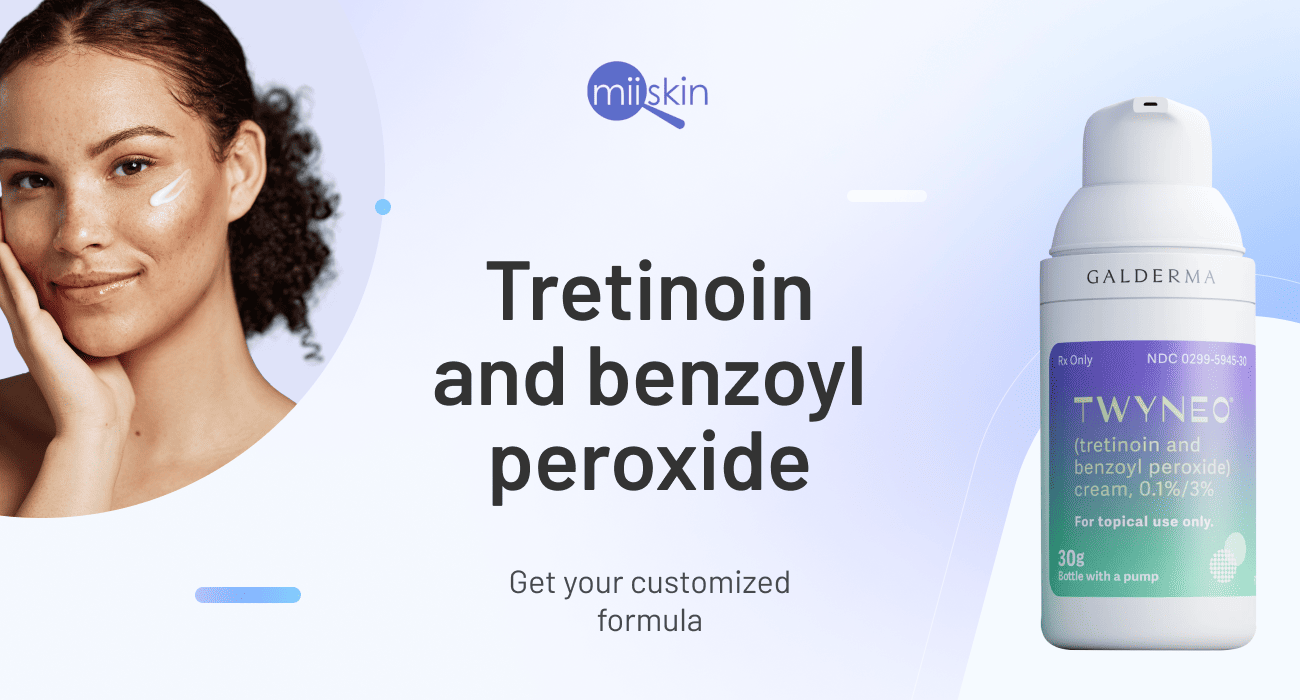Acne Annihilators: Retinoids vs. Benzoyl Peroxide – Picking Your Pore Powerhouse
Retinoids vs. Benzoyl Peroxide: Acne. The bane of many a teenager’s existence (and sometimes adults too!). While the frustration is real, there are effective weapons in the fight against breakouts. Two powerful contenders are retinoids and benzoyl peroxide. But which one reigns supreme in preventing acne and future breakouts? Let’s dive into their strengths and weaknesses to help you choose your champion.
The Retinoid Regimen: Long-Term Warrior
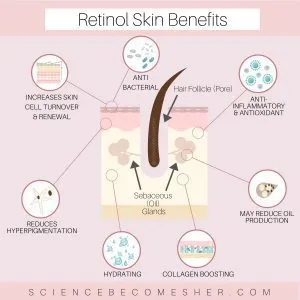
Retinoids are a class of medications derived from vitamin A. They work on multiple fronts to combat acne:
- Cellular Turnover: Retinoids accelerate skin cell turnover, helping to unclog pores and prevent future blockages. This can lead to smoother, clearer skin over time.
- Anti-inflammatory Power: Retinoids possess anti-inflammatory properties, which can help reduce redness and swelling associated with acne.
- Collagen Boost: Some retinoids may stimulate collagen production, which improves skin texture and reduces the appearance of acne scars.
Downsides of Retinoids:
- Initial Irritation: Retinoids can cause dryness, irritation, and peeling, especially when first starting use.
- Sun Sensitivity: Retinoids increase sun sensitivity, so regular sunscreen use is crucial.
- Pregnancy Concerns: Retinoids are contraindicated during pregnancy and breastfeeding.
The Benzoyl Peroxide Blitz: Fast-Acting Fighter
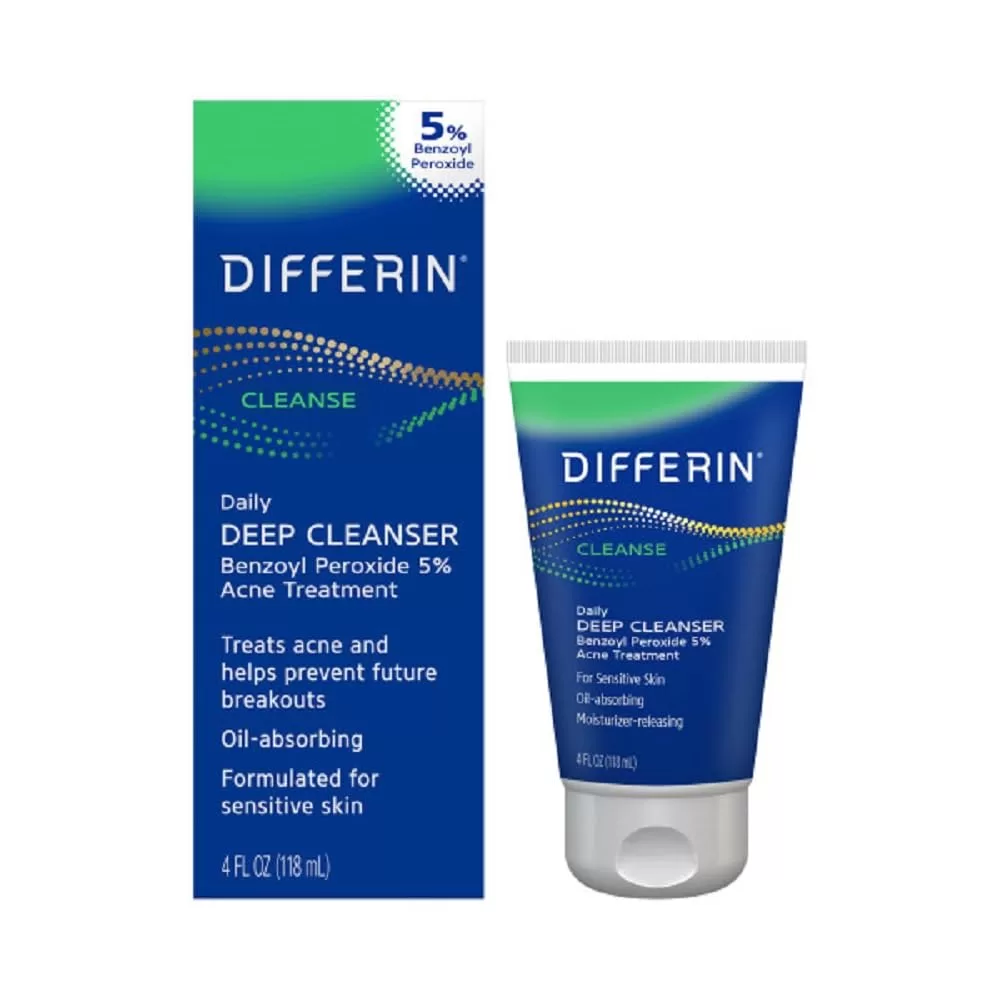
Differin Acne Face Wash with 5% Benzoyl Peroxide, Daily Deep Cleanser by the makers of Differin Gel, Gentle Skin Care for Acne Prone Sensitive Skin, 4 oz..
Benzoyl peroxide is a topical medication that directly attacks the bacteria (P. acnes) responsible for acne breakouts. Here’s how it works:
- Bacterial Buster: Benzoyl peroxide kills acne-causing bacteria, reducing inflammation and preventing future breakouts.
- Quick Results: Benzoyl peroxide often shows visible improvement faster than retinoids.
Limitations of Benzoyl Peroxide:
- Drying Power: Similar to retinoids, benzoyl peroxide can cause dryness and irritation.
- Limited Long-Term Effects: While effective at killing bacteria, it doesn’t address underlying causes like clogged pores.
- Bleaching Potential: Benzoyl peroxide can bleach fabrics, so be cautious when applying it near clothing.
Retinoids vs. Benzoyl Peroxide
So, Retinoids or Benzoyl Peroxide?
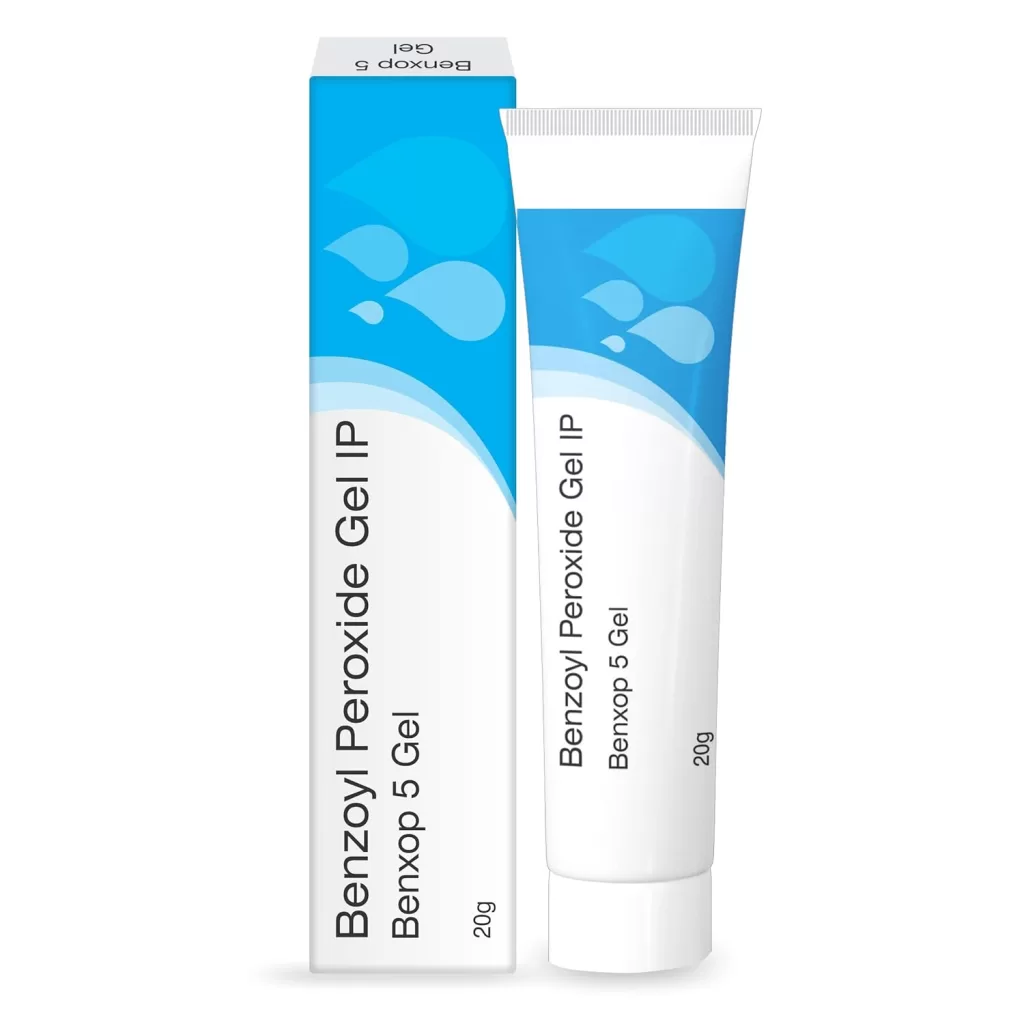
Salve Benxop Benzoyl Peroxide 5% Pimples Cream 20gm (0.70 Fl Oz)
The answer depends on your specific acne situation:
- For mild to moderate acne with long-term prevention goals: Retinoids might be a better choice due to their ability to address multiple factors and prevent future breakouts.
- For moderate acne with a need for quick results: Benzoyl peroxide could be the initial weapon of choice, particularly in cases with prominent inflammatory lesions.
- For sensitive skin: Consult a dermatologist for guidance on a suitable option or a combination approach with lower concentrations.
Combination Therapy: A Powerful Punch
Dermatologists often recommend combining retinoids and benzoyl peroxide for optimal results. This combination therapy leverages the strengths of each medication:
- Retinoids unclog pores and prevent future breakouts, while
- Benzoyl peroxide kills bacteria and reduces inflammation.
Beyond Retinoids and Benzoyl Peroxide:
While retinoids and benzoyl peroxide are powerful weapons, they aren’t the only options in the acne-fighting arsenal. Here’s a glimpse at some other contenders:
- Salicylic Acid: This gentle exfoliant helps unclog pores and reduce inflammation, making it suitable for mild acne.
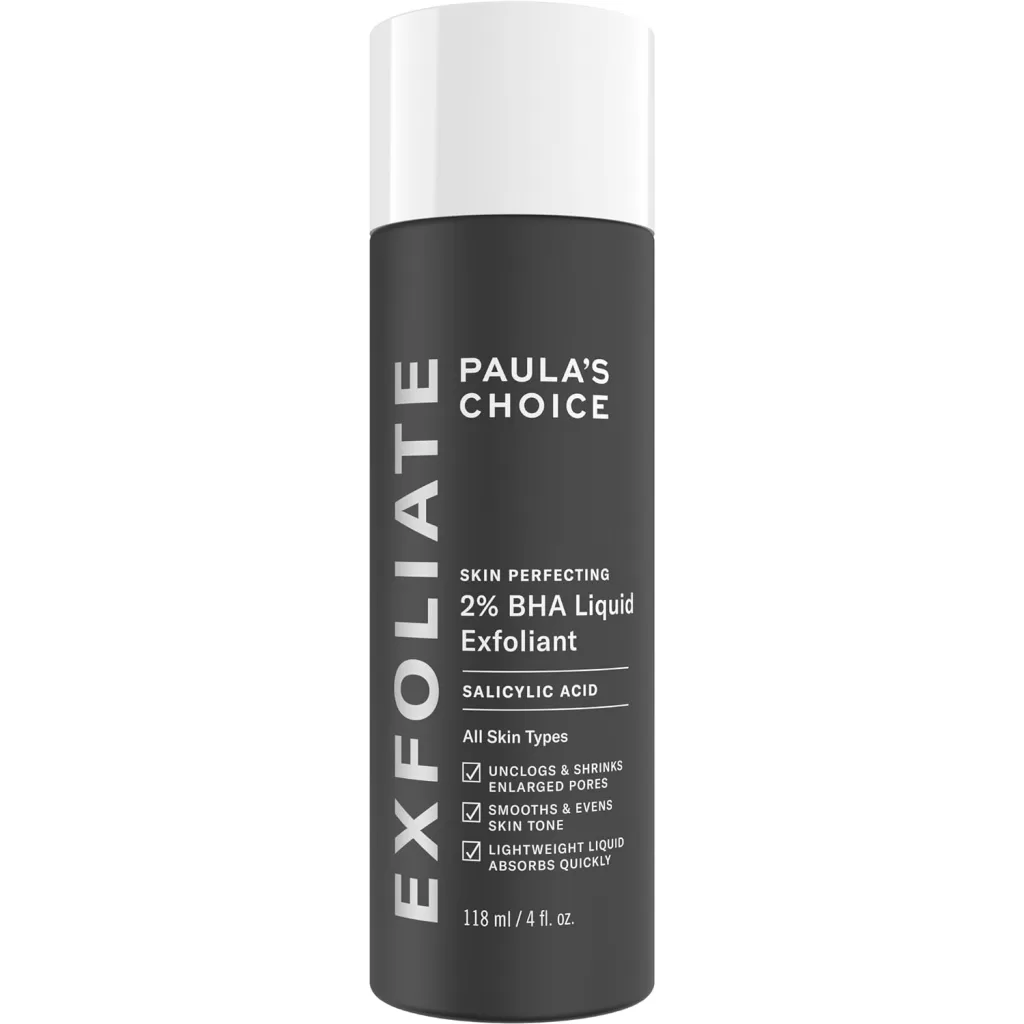
Paulas Choice–SKIN PERFECTING 2% BHA Liquid Salicylic Acid Exfoliant–Facial Exfoliant for Blackheads, Enlarged Pores, Wrinkles & Fine Lines, 4 oz Bottle
- Azelaic Acid: This multi-tasking ingredient has antibacterial, anti-inflammatory, and comedolytic (pore-clearing) properties, making it beneficial for various acne types.
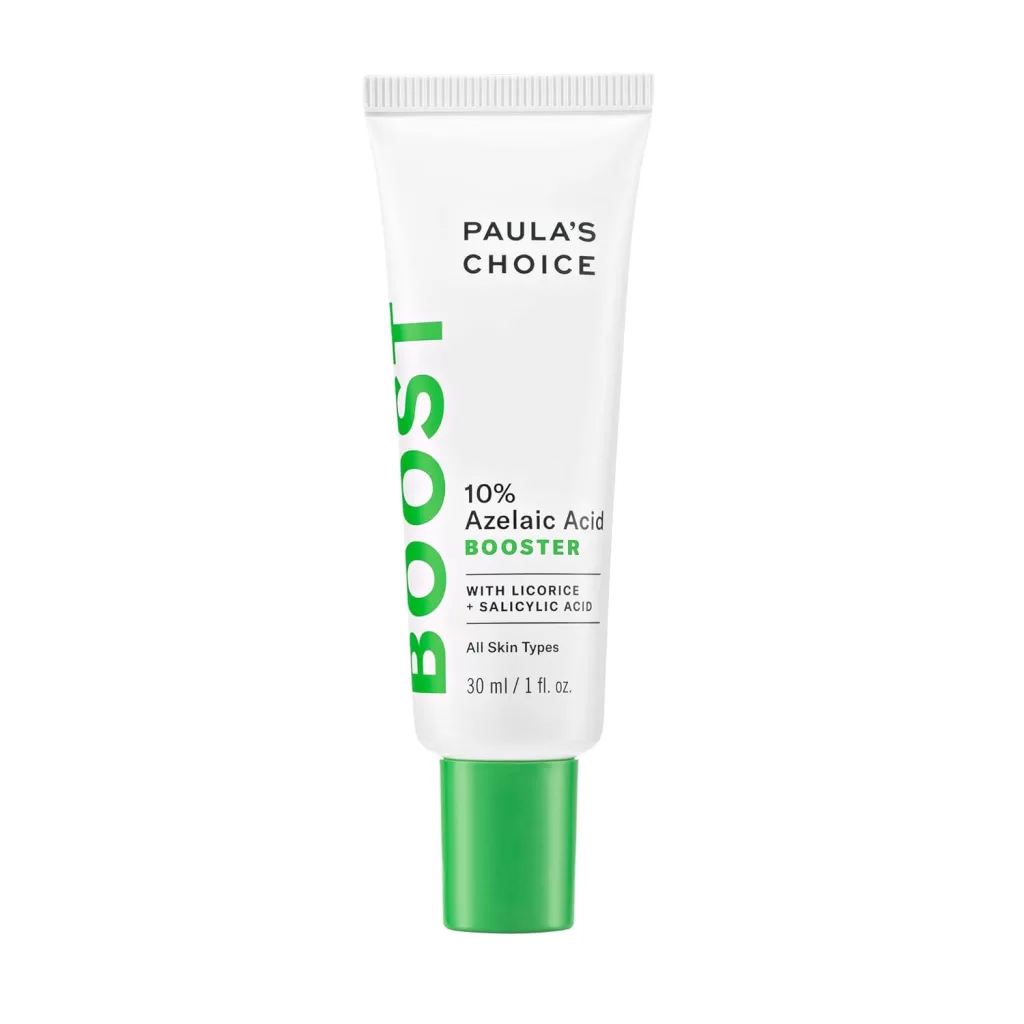
Paula’s Choice BOOST 10% Azelaic Acid Booster Cream Gel, Licorice Extract & Salicylic Acid, Oil-Free Skin Brightening Serum, 1 Ounce
- Antibiotics: In severe cases with widespread inflammation, a dermatologist might prescribe oral antibiotics to target the bacteria.

Bacitracin First aid Antibiotic Ointment, USP – 1/2 Oz
| Brand | Bacitracin |
| Item Weight | 0.5 Ounces |
| Number of Items | 1 |
| Item Form | Ointment |
| Age Range (Description) | Kid |
Remember: Consistency is key! Whether you choose retinoids, benzoyl peroxide, or a combination, consistent use is crucial for long-term success. It’s also important to consult a dermatologist to determine the best course of action for your specific acne type and severity. With the right approach, you can banish breakouts and achieve clearer, smoother skin.
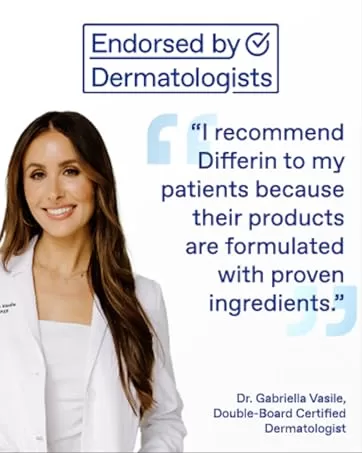
FAQ: Retinoids vs. Benzoyl Peroxide
What are retinoids and benzoyl peroxide?
Retinoids: A class of medications derived from vitamin A that work to unclog pores, reduce inflammation, and boost collagen production. Benzoyl peroxide: A topical medication that directly kills the bacteria responsible for acne breakouts.
Which is better for acne: retinoids or benzoyl peroxide?
The best choice depends on your specific acne type and severity.
- Retinoids are often preferred for long-term prevention and improvement of skin texture.
- Benzoyl peroxide is a good option for quick results in reducing inflammation and killing bacteria. A combination of both can be very effective.
What are the side effects of retinoids and benzoyl peroxide?
Both can cause initial dryness, irritation, and increased sun sensitivity. Benzoyl peroxide can also bleach fabrics.
Can I use retinoids and benzoyl peroxide together?
Yes, combining these two treatments can be effective, but it’s important to start slowly and monitor your skin for irritation. Consult with a dermatologist for personalized advice.
How long does it take to see results with retinoids and benzoyl peroxide?
Results can vary, but you may start to see improvement within a few weeks. Consistency is key.
Are retinoids and benzoyl peroxide safe for pregnant women?
No, retinoids are generally not recommended during pregnancy. Consult with a healthcare provider for advice on safe acne treatments during pregnancy.
Can I use over-the-counter retinoids and benzoyl peroxide?
Yes, you can purchase over-the-counter products containing these ingredients. However, for severe or persistent acne, it’s best to consult a dermatologist for prescription-strength options.

Tree of Life Essential Skincare Tips and Solutions
Explore more articles like this @ Where And How Resources
If you found this article helpful, don’t forget to share it with your friends and followers!

